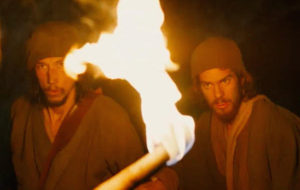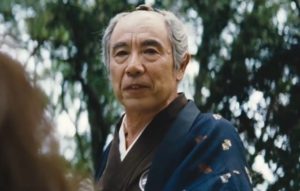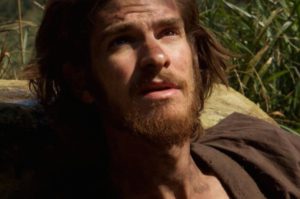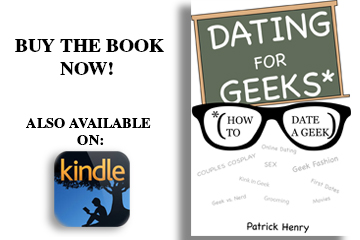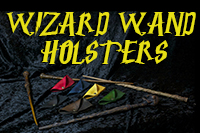Silence Review
Jondee here at Nagasaki,
Silence is a film in limited release from December 23rd and will be in wide release in January of next year. It is noted as a work that took director Martin Scorsese two years to make and it shows in the subject matter. The faith part of this movie somehow made it appropriate for a Christmas review. Basically, if you are a person of faith and would like to have your faith questioned, then this might be the movie for you, otherwise it may be difficult for you to watch this film. I think I was interested in it as a movie directed by Scorsese, I can sense this is a work that struck deeply in him, personally as well as creatively. He has also co-written the screenplay with Jay Cocks who also worked on Gangs of New York (2002) and The Age of Innocence (1993). The film’s story was based on the novel of the same name by Shusaku Endo who wrote it in 1966. I know that the Jesuits visited Japan, but don’t know much of the history behind it and I’m more interested in what is presented in the Scorsese film. I could tell you every part of the plot from start to finish, but you wouldn’t understand. I could compare to say Apocalypse Now (1979) or the 1899 Heart of Darkness novella by Joseph Conrad, but the movie only shares elements of the plot with them. Instead, the film follows two Jesuit priests, Rodrigues (Andrew Garfield) and Garrpe (Adam Driver) as they try to bring the faith to 17th century Japan and somehow find the man who has renounced the faith, Ferreira (Liam Neeson). I’m not certain if Garfield and Driver had lost weight for the part, but there is some shocking looks at both actors starved and worn down. The priests are guided by a wild man, Kichijiro (Yosuke Kubozuka) who may or may not betray them. They are being hunted by the Inquisitor Inoue (Issey Ogata) and his interpreter, Tadanobu Asano who played Hogun in the Thor films and Lord Kira in 47 Ronin (2013). There is brilliance in all of the parts.
Garfield plays a man who is driven by faith, but is lost when it runs out. Of course, we are supposed to side with him and see that he is a strange world where he doesn’t understand the language or customs. This is exactly the point where I started to see the film as a metaphor, it is not about Christianity or Buddhism or Japan, that is the surface. Instead the film reflects on you, the viewer, your prejudice against others who may be different than you, against other beliefs. I find it is the same with the violence inflicted on innocents who believe in another faith, it doesn’t in the end matter what faith hurts another, just that there are those who find a different belief intolerable, something that shouldn’t be in their country, nationalism not belief. This is something I learned from listening and reading the work and words of religious studies scholar and author Reza Aslan. Any faith can be interpreted to mean anything for any means. Instead, I think of the film as about faith, questioning it, what sacrifices are asked of it, to the point where we have to question our humanity, it is about colonizers and the colonized, arrogance, different faiths and beliefs, and ultimately I think the film is about the prosecution of a minority faith, any minority faith. This is the silence of the movie. All of the complex themes wrapped in it. The contrast is in the Inquisitor who is brutal and also we see him smiling. He has learned from all of the times trying to break others of faith. There is some incredible cinematography by Rodrigo Prieto who also shot the brilliant Julie Taymor film, A Midsummer Night’s Dream (2014), and Alejandro Inarritu’s Babel (2006). It is great that a director like Scorcese challenges himself, challenges his audience, and this creates a work of value. I think it trivial to assign a value to Silence, but I will, and give it Five Fumi-e out of Five.

